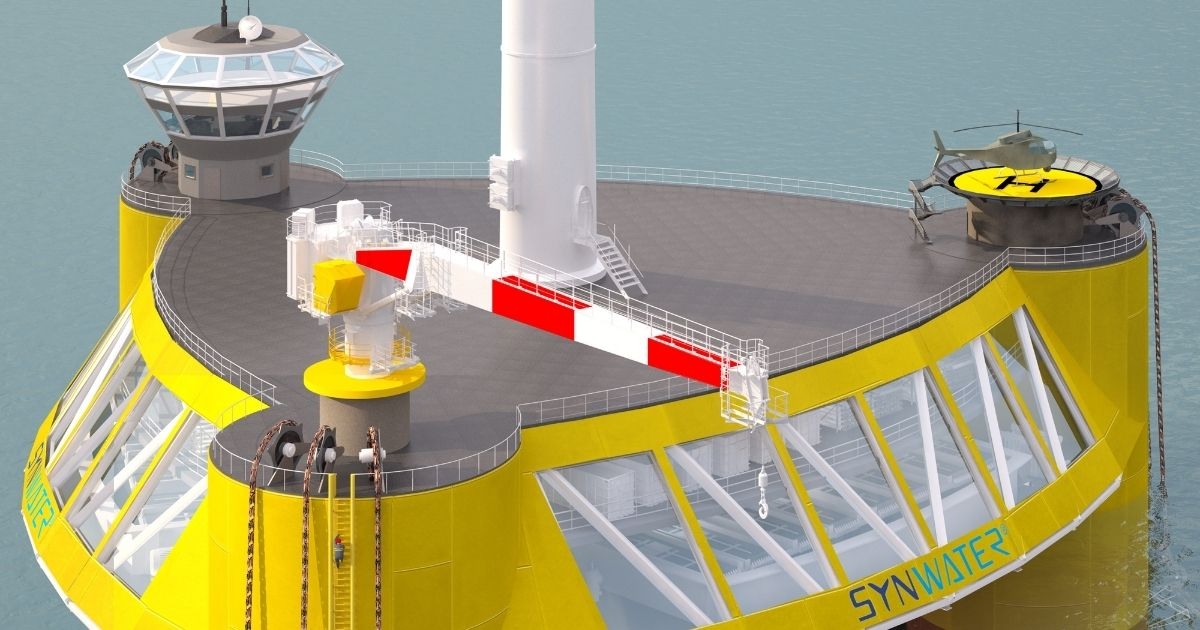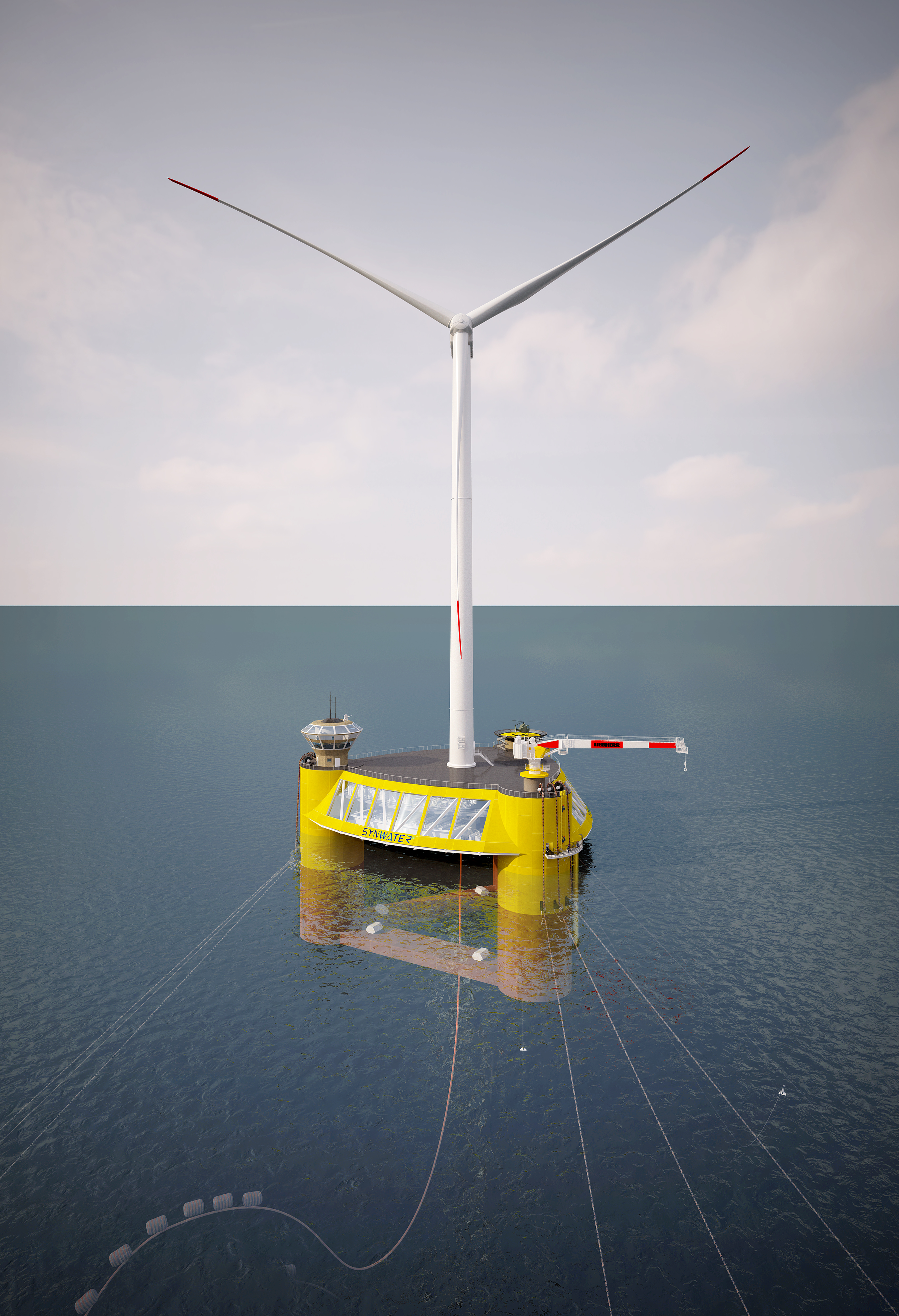Floating Water Utilities – European Industry Initiative Prepares Market Entry

Floating WINDdesal (FWD) is a "floating water utility" and stands for a path-breaking technology supplying potable water to coastal regions worldwide. FWD essentially consists of a seawater desalination plant and a wind turbine, both supported by a floating semi-submersible structure.
The FWD development is carried out and supported by a European industry initiative with the participation of system partners (thyssenkrupp Industrial Solutions, CRIST Shipyard, SYNLIFT Industrial Products) as well as technology partners (Prysmian Group, Boll & Kirch Filterbau, AEROVIDE, StoGda Ship Design & Engineering, EMS Maritime Offshore).
Both project management and general planning lie with the Potsdam-based company SYNLIFT Industrial Products (SIP), recurring on many years of experience in the field of seawater desalination powered by renewable energies.
 A first FWD project implementation – most probably in the Middle East – is to begin this year.
A first FWD project implementation – most probably in the Middle East – is to begin this year.
Through the innovative combination of flexible processing, integrated energy and load management and extra-long blade wind technology, FWD seawater desalination is almost entirely powered by wind energy.
With three module sizes in preparation, the daily water treatment capacity of this eco-water-utility is 15,000, 30,000 or 50,000 m3 per day. Hence, the largest FWD module can provide drinking water for up to half a million people.
Applying the semi-submersible technology – originally developed for deep-sea oil drilling and today increasingly also used for offshore wind energy – locations with greater water depths can also be activated cost-effectively for FWD with a minimized impact of seawater desalination on the maritime and terrestrial environment.
The floating utility solution is easy to mobilize at short notice, ideal for emergencies and any kind of temporary mission. According to head of FWD project, Joachim Käufler (SIP), it also offers an additional potential:
Our floating utility unit is ‚mobile’. If necessary, the entire plant can be relocated by sea. As a result of that, requirement for customers to provide securities and guarantees – indispensable for the long- term operation of stationary onshore desalination plants – is significantly reduced or, at best, not required at all. FWD is therefore intended to enable sustainable and cost-effective seawater desalination even in locations where conventional desalination could not be financed.”
Floating WINDdesal combines the aspects of security of supply, sustainability, flexibility and cost efficiency and therefore provides a consistent answer to one of the central challenges of our time - supplying clean drinking water under growing climate and demographic pressure.

